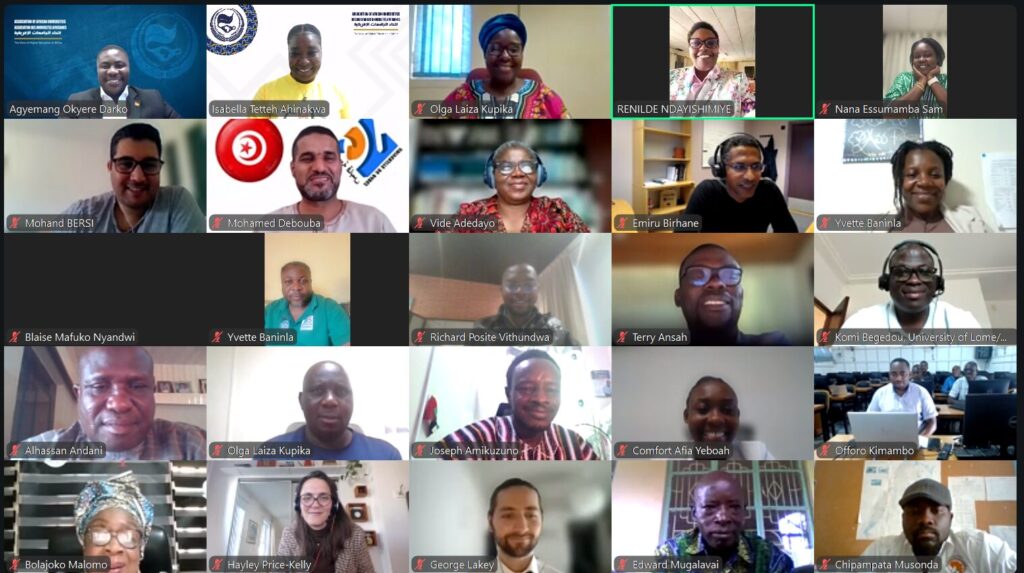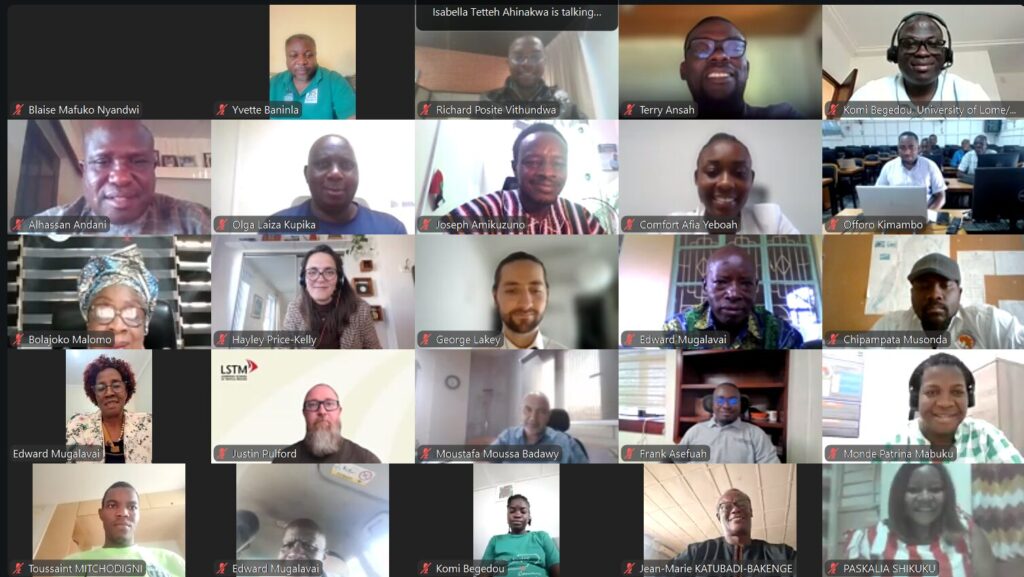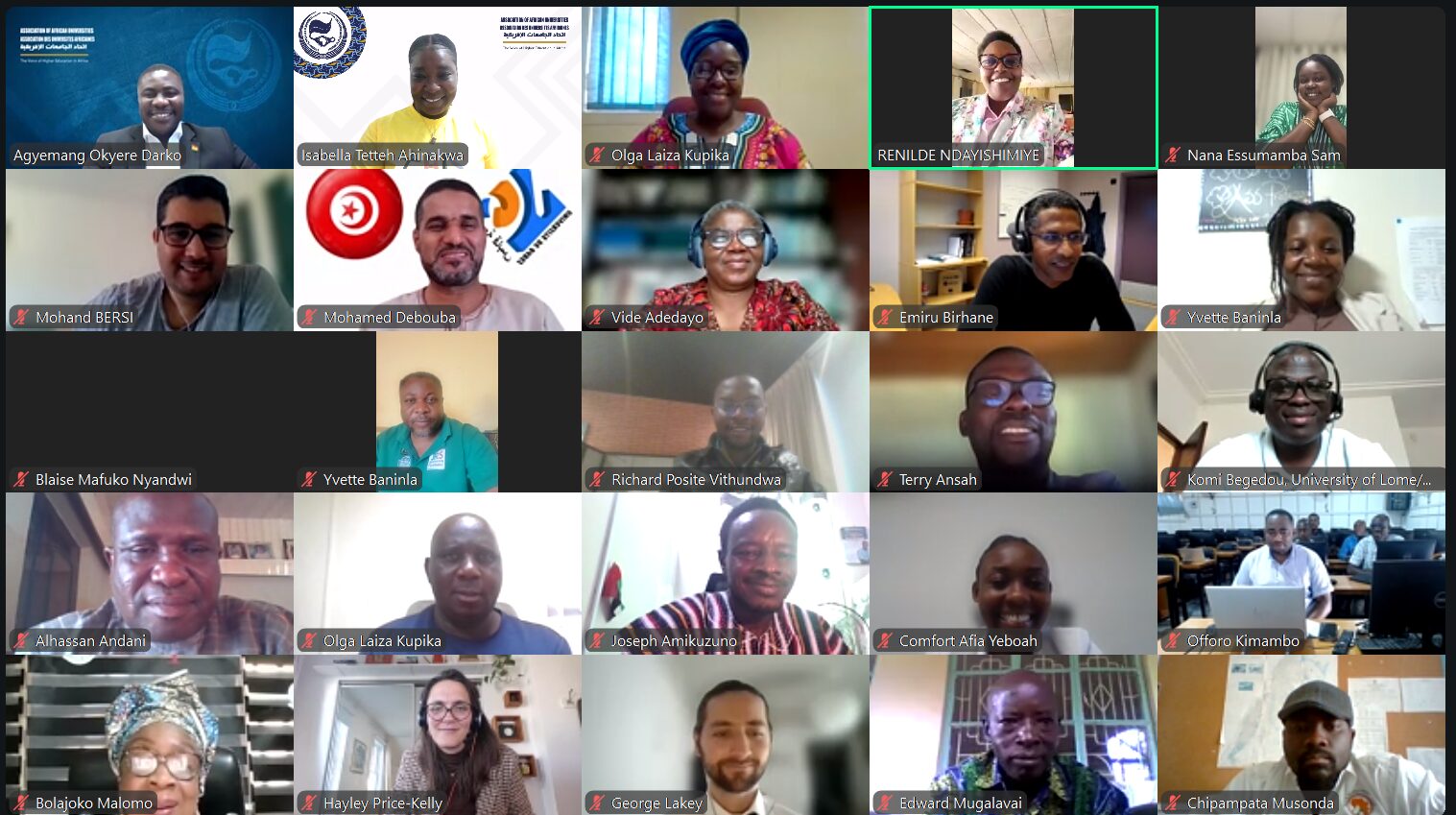Celebrating 20 Selected African Universities and Institutions to Advance Climate Adaptation Research: A Major Milestone of the CO-CAT Project
/
Africa’s higher education landscape continues to demonstrate its commitment to leading global efforts in addressing the urgent challenges posed by climate change. This was reaffirmed during the virtual unveiling ceremony by the CO-CAT Project, held under the CLimate Adaptation and REsilience (CLARE) initiative, to celebrate the selection of 20 African universities and institutions that will co-create and pilot the Climate-focused Organizational Capacity Assessment Tool (CO-CAT).

The event, hosted on Friday, 10th October 2025, by the Association of African Universities (AAU) in partnership with the Association of Commonwealth Universities (ACU) and the Liverpool School of Tropical Medicine (LSTM), marked the official transition of the project from its design phase into the implementation phase. This served as a celebration of achievement and a reaffirmation of the partners’ shared commitment to building institutional capacity for climate adaptation research across the continent.
Delivering the welcome remarks, Prof. Frederick Ato Armah, Director of Research and Programs at AAU, described the ceremony as a celebration of excellence, resilience, and African leadership in climate research. He further acknowledged the support of the UK Foreign Commonwealth Development Office (UK FCDO) and the International Development Research Centre (IDRC) for funding the CLARE initiative and commended the implementing partners for their dedication to shaping the conceptual and methodological foundation of the project. “Today, we celebrate not just individual excellence, but a collective commitment to finding solutions rooted in African realities and driven by African expertise,” he said.
Prof. Armah also revealed that over 370 institutions applied for the CO-CAT Project, and the 20 universities and institutions selected represent the very best of Africa’s academic potential. Their selection was guided by a robust set of criteria, including research alignment with climate adaptation goals, institutional commitment, inclusivity, partnerships, and readiness for the Living Lab approach.
The event featured remarks from key partners who reaffirmed their continued commitment to the success of the CLARE initiative and the CO-CAT Project. Representing LSTM, Dr. Justin Pulford expressed his excitement about the partnership and underscored the importance of collective effort. “From the Liverpool School of Tropical Medicine’s point of view, we’re incredibly excited to be working on this project under the leadership of the AAU. And what’s exciting about it is the co-creation element; it’s going to be the collective effort of everyone on this call that really brings this project to life,” he said. Echoing this sentiment, Dr. George Lakey from the ACU also reaffirmed their commitment to institutional capacity strengthening in Africa’s research systems. He also emphasized the opportunity the diversity of institutions presents to connect different contexts across the continent and enable the mutual learning that is so vital to addressing climate challenges.
Ms. Hayley Price-Kelly, Senior Programme Officer at IDRC and Project Lead for CLARE, highlighted how the CO-CAT Project aligns with the broader CLARE mission of promoting southern-led, inclusive climate adaptation research. She stated that CLARE is bridging critical gaps between science and action by championing southern leadership to enable socially inclusive and sustainable action for resilience. “The CO-CAT Project is helping to address an important niche in our portfolio with its focus on understanding and supporting organizational capacity of universities and other organizations to conduct impactful climate adaptation research. So, we really look forward to learning with the team, not only how we can assess and understand these organizational capacities for climate adaptation research, but also about potential solutions to supporting and strengthening those capacities. Her remarks reinforced the project’s importance as part of CLARE’s theory of change, which recognizes that strengthening capacity to do and use adaptation research is critical for ensuring evidence-based climate solutions that support the most vulnerable.

Unveiling the 20 Selected Universities and Institutions
The 20 selected universities and institutions were officially announced by Prof. Juliet Thondhlana of the University of Nottingham, who congratulated the institutions for their selection and encouraged them to seize the opportunity to strengthen their contribution to climate adaptation research. The institutions include:
- University of Gabès, Tunisia
- Zewail City for Science and Technology, Egypt
- African Plant Nutrition Institute, Morocco
- University of Science and Technology Houari Boumediene, Algeria
- Makerere University, Uganda
- Sokoine University of Agriculture, Tanzania
- Masinde Muliro University of Science and Technology (MMUST), Kenya
- Mekelle University – Institute of Climate and Society, Ethiopia
- The University of Bamenda, Cameroon
- Université du Lac Tanganyika, Burundi
- Official University of Semuliki, Democratic Republic of Congo
- University of Goma – School of Volcanology and Disaster Risk Management, Democratic Republic of Congo
- University for Development Studies, Ghana
- University of Abomey-Calavi, Benin
- University of Lagos, Nigeria
- University of Botswana – Okavango Research Institute, Botswana
- University of Namibia (UNAM), Namibia
- University of Zambia, Zambia
- University of Lomé, Togo
- Namibia University of Science and Technology, Namibia
These institutions, spanning North, West, Central, East, and Southern Africa, represent a diverse range of expertise and regional contexts. Each university will serve as a pilot hub for testing and refining the CO-CAT tool, generating insights that will shape a robust framework for capacity strengthening in climate adaptation research.
Following the official unveiling, representatives shared brief introductions of their teams and reflected on their research focus areas and institutional strengths. Many of the institutions highlighted their ongoing work in areas such as climate-smart agriculture, environmental management, community adaptation strategies, and disaster risk reduction. Others also shared their readiness to collaborate and their expectation that participation in the CO-CAT Project will enhance their institutional systems, research infrastructure, and capacity to translate research into policy-relevant outcomes. As one representative noted, “Being part of the CO-CAT Project is both an honour and a call to action. This platform enables us to not only assess where we stand as institutions but to contribute meaningfully to shaping the future of climate adaptation research in Africa.”
A key highlight of the ceremony was the introduction of the Virtual Living Lab, which will be hosted on the FigJam platform. The platform is designed to foster co-creation, peer learning, and knowledge exchange among participating institutions throughout the implementation of the CO-CAT Project. Participants were briefed on how the Living Lab would enable stakeholders to engage interactively through virtual workshops, exchange ideas using collaborative tools, and collectively refine the CO-CAT tool. This participatory approach reflects the project’s ethos of inclusivity, knowledge sharing, and innovation.
The unveiling ceremony marks the official transition of the project from planning to implementation, which will be guided by principles of co-creation, collaboration, inclusivity, and learning. This next phase will involve conducting onboarding and orientation workshops through the virtual living lab and piloting the CO-CAT tool across the selected institutions to identify strengths, gaps, and opportunities for building sustainable research systems. Through this process, the institutions will co-generate data and case studies that inform institutional improvement, while the resulting insights will inform the final refinement of the CO-CAT tool. The expected outcomes include:
- Strengthened university systems for climate adaptation research
- Improved collaboration between academia, policymakers, and communities, and
- A stronger evidence base for future investment in higher education and climate resilience.
This milestone reinforces the CLARE programme’s vision of connecting research, innovation, and action to drive tangible change. By fostering institutional excellence and South–South learning, CO-CAT will enhance Africa’s research capacity as well as demonstrate a model that can be replicated globally.
Watch the full unveiling ceremony here.
About the CO-CAT Project
The Understanding African Universities’ Capacity for Climate Adaptation Research: Co-creating and Implementing a Climate-focused Organizational Capacity Assessment Tool (CO-CAT) is a 24-month initiative funded mostly (about 90%) by the UK Foreign Commonwealth Development Office (UK FCDO), and co-funded by the International Development Research Centre (IDRC), Canada, through the CLimate Adaptation and REsilience (CLARE) program. It is implemented by the Association of African Universities (AAU), the Association of Commonwealth Universities (ACU), and the Liverpool School of Tropical Medicine (LSTM). It aims to strengthen the capacity of African universities to conduct impactful climate adaptation research. The project works with 20 African universities to co-create and pilot a capacity assessment tool that strengthens institutional research systems for climate adaptation and resilience.


